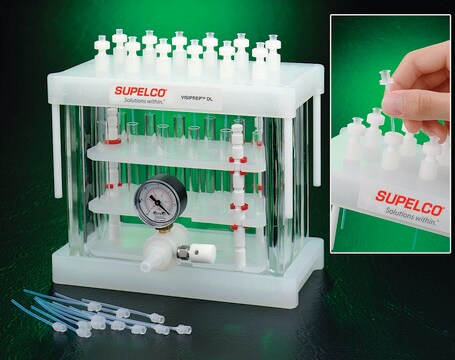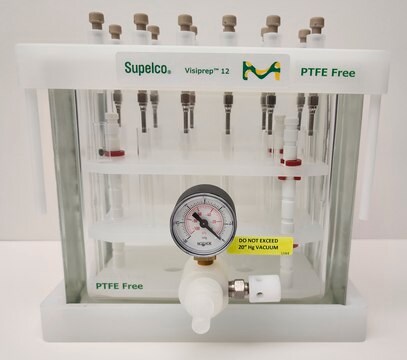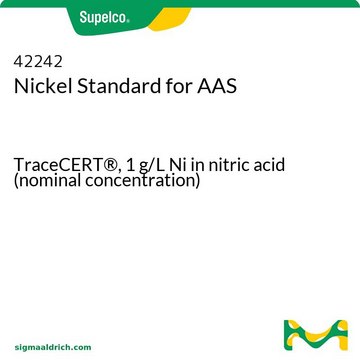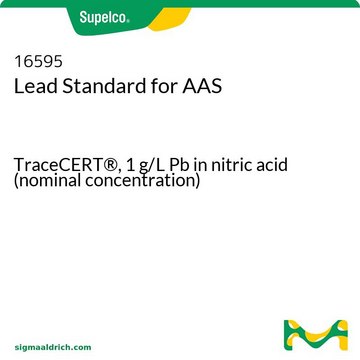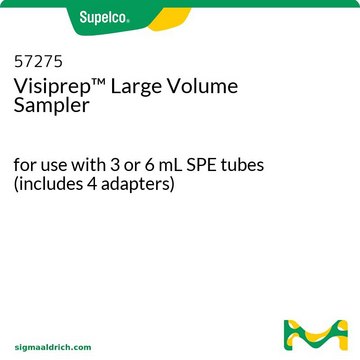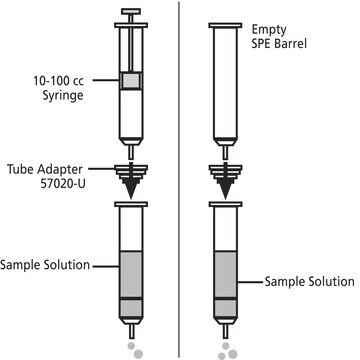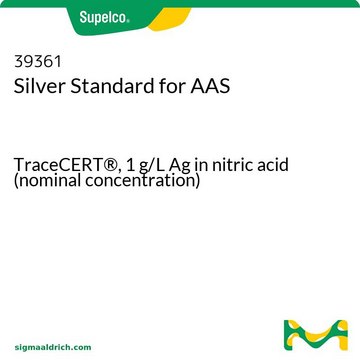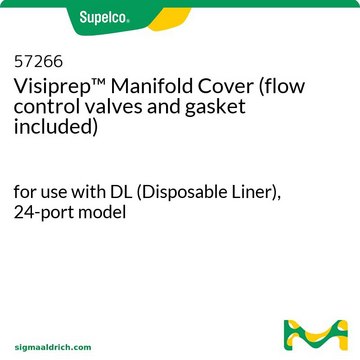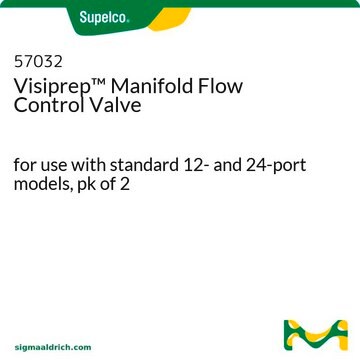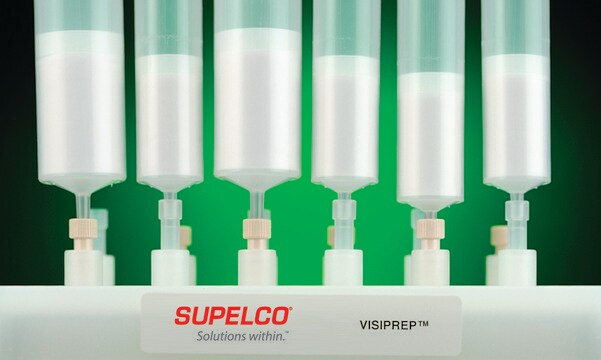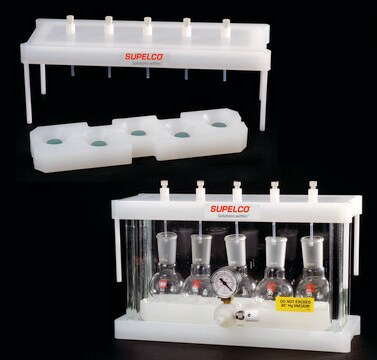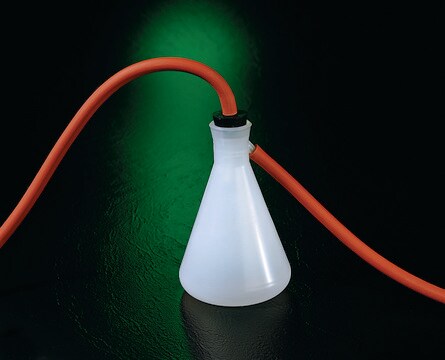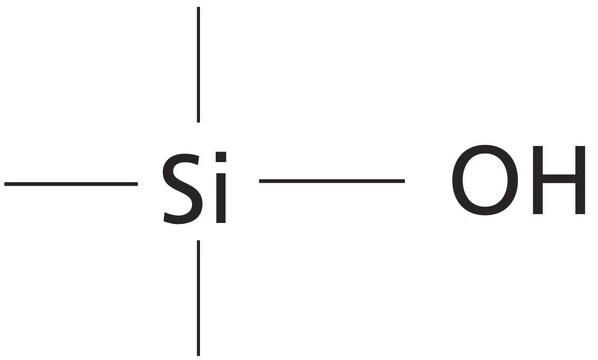57059
Disposable Liners for Visiprep DL Manifolds (included with 57044 and 57265)
PTFE, pk of 100
About This Item
Recommended Products
material
PTFE
Quality Level
packaging
pk of 100
technique(s)
solid phase extraction (SPE): suitable
application(s)
food and beverages
General description
Choose from one of the most recent versions:
Certificates of Analysis (COA)
Sorry, we don't have COAs for this product available online at this time.
If you need assistance, please contact Customer Support.
Already Own This Product?
Find documentation for the products that you have recently purchased in the Document Library.
Customers Also Viewed
Articles
QuEChERS Cleanup and Analysis of Veterinary Drugs in Milk by LC/MS/MS
Pesticide residue testing of turmeric and other (dried) spices is challenging due to their complex compositions and high matrix. An efficient SPE clean-up can be achieved by a new Dual-layer cartridge.
A procedure for cleanup of green tea extracts provides low background and allowed for the analysis of more pesticides at lower levels than QuEChERS. Uses less solvents and no toluene.
The odor and pungency of ginger is due to the presence of terpenes, gingerols and shogaols. These compounds contribute to the highly complex matrix of ginger, which subsequently presents a challenge in low level analyses of contaminants. A novel 2-layer SPE cartridge efficiently reduces background for pesticide determination.
Protocols
Polychlorinated biphenyls (PCBs) were once widely used in many industrial and commercial applications such as insulating fluids, dielectrics, and lubricants. This included their extensive use in electrical transformers. PCB use has been banned in many countries, and the Stockholm Convention currently prohibits their production and use.
Paprika is a spice made from dried sweet peppers, and is used for flavor and color in many types of cuisine. Contamination with polynuclear aromatic hydrocarbons (PAHs) can occur when pepper plants are exposed to these pollutants in the environment and/or during the drying process.
solution, 2 μg/mL in acetonitrile, analytical standard
Our team of scientists has experience in all areas of research including Life Science, Material Science, Chemical Synthesis, Chromatography, Analytical and many others.
Contact Technical Service